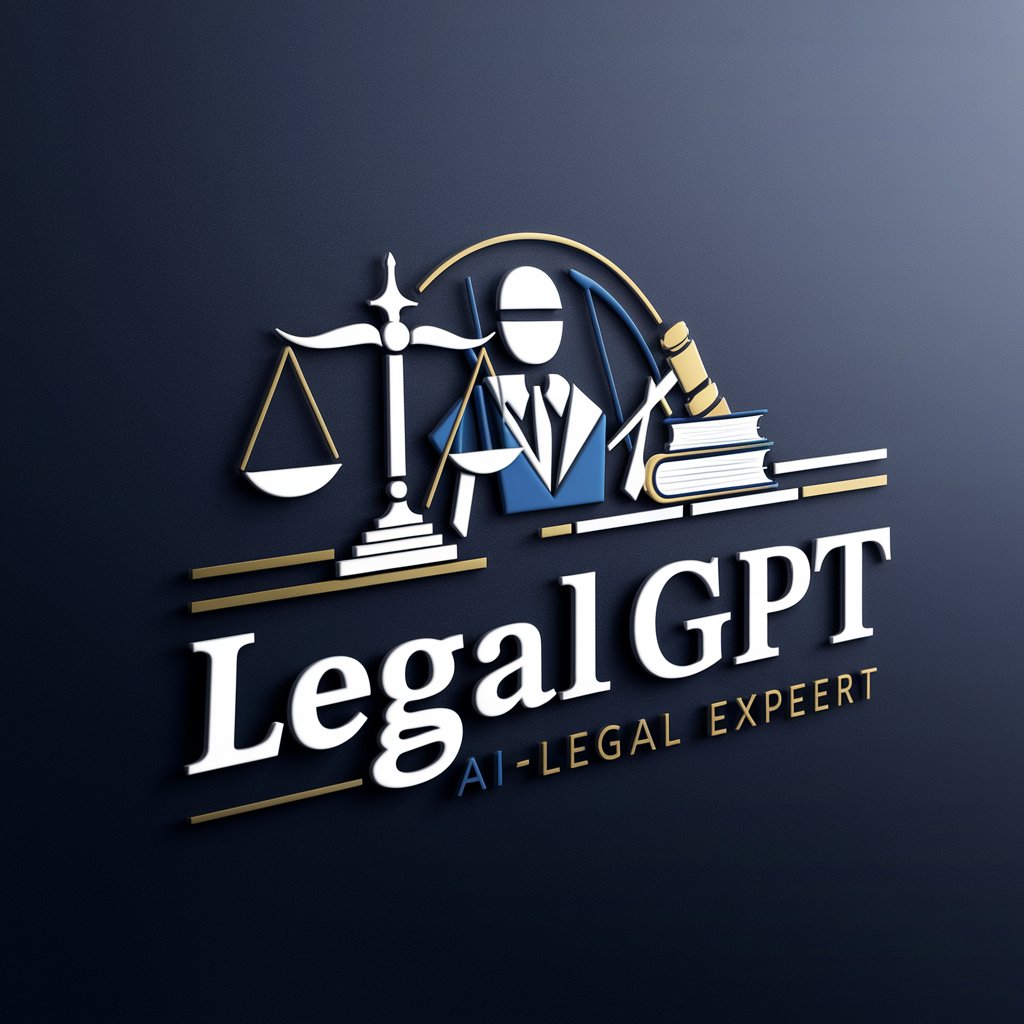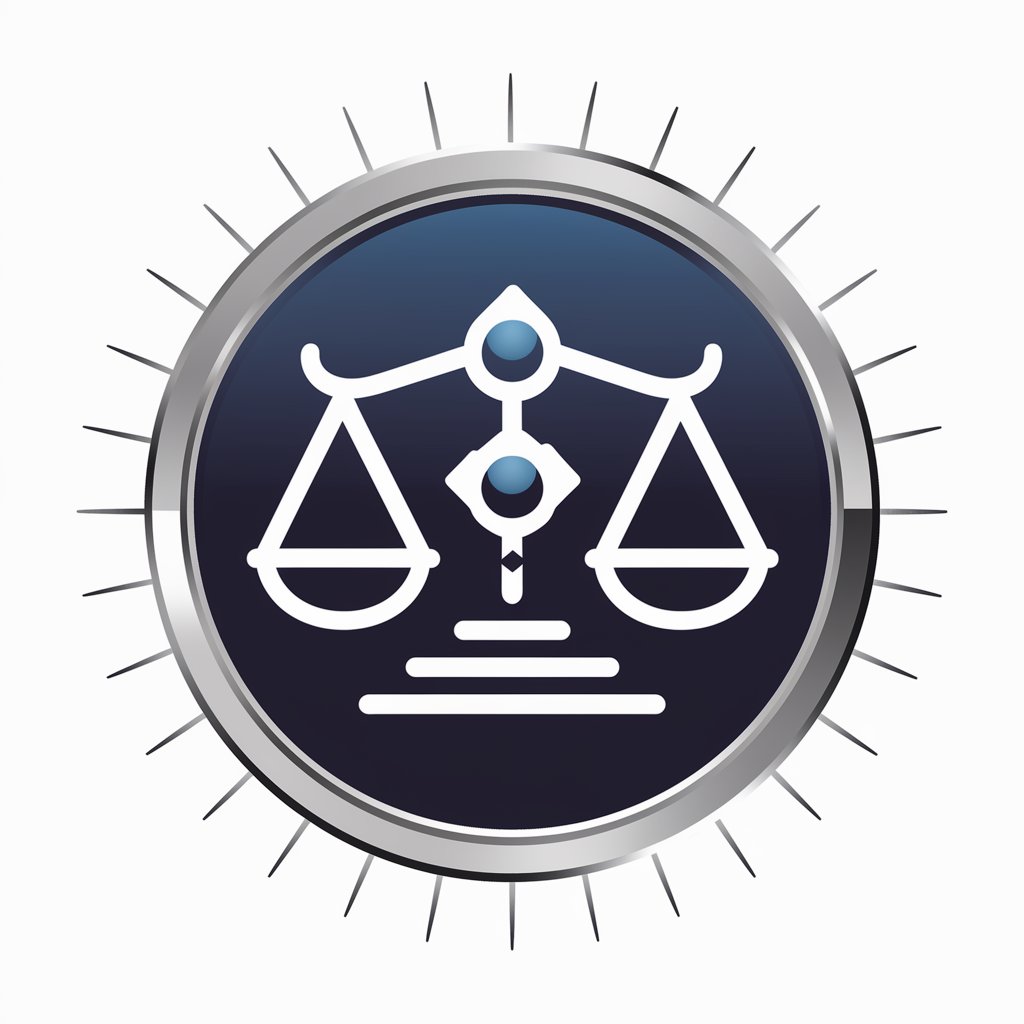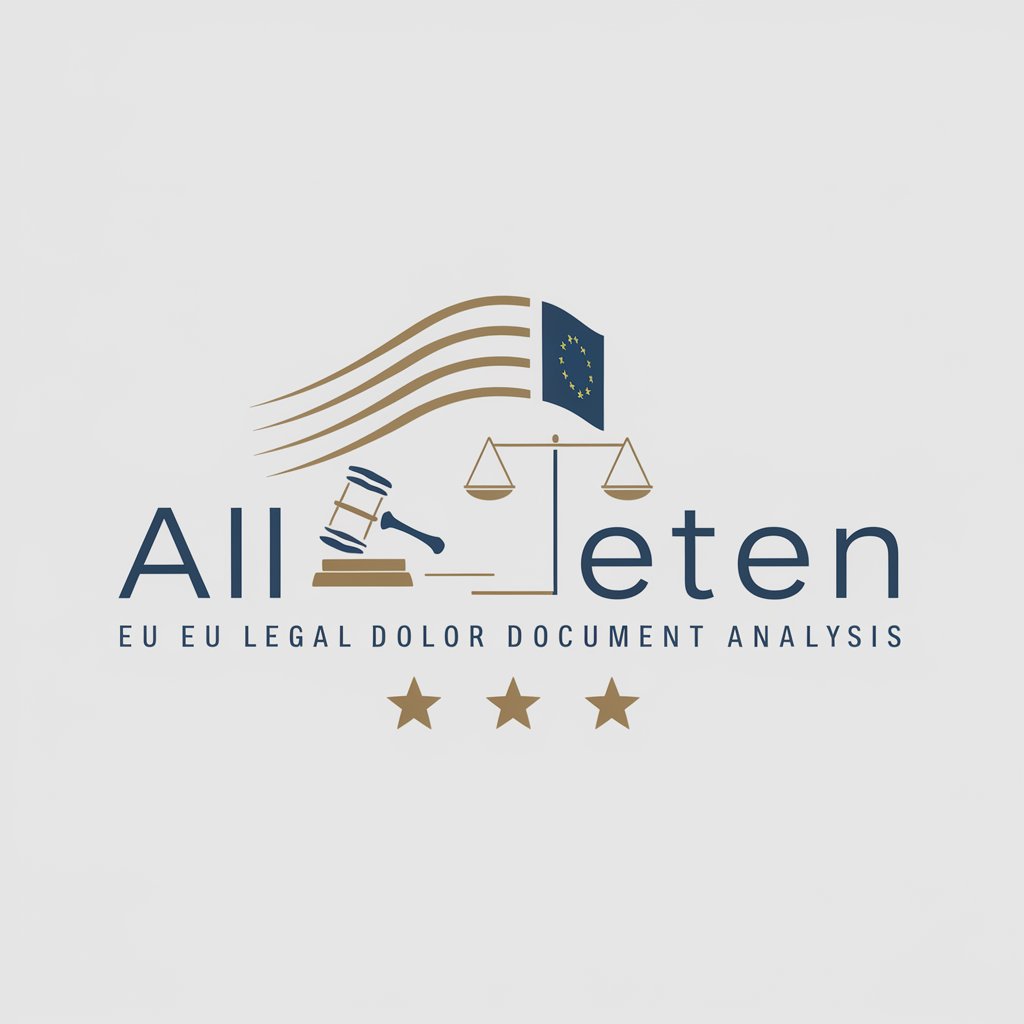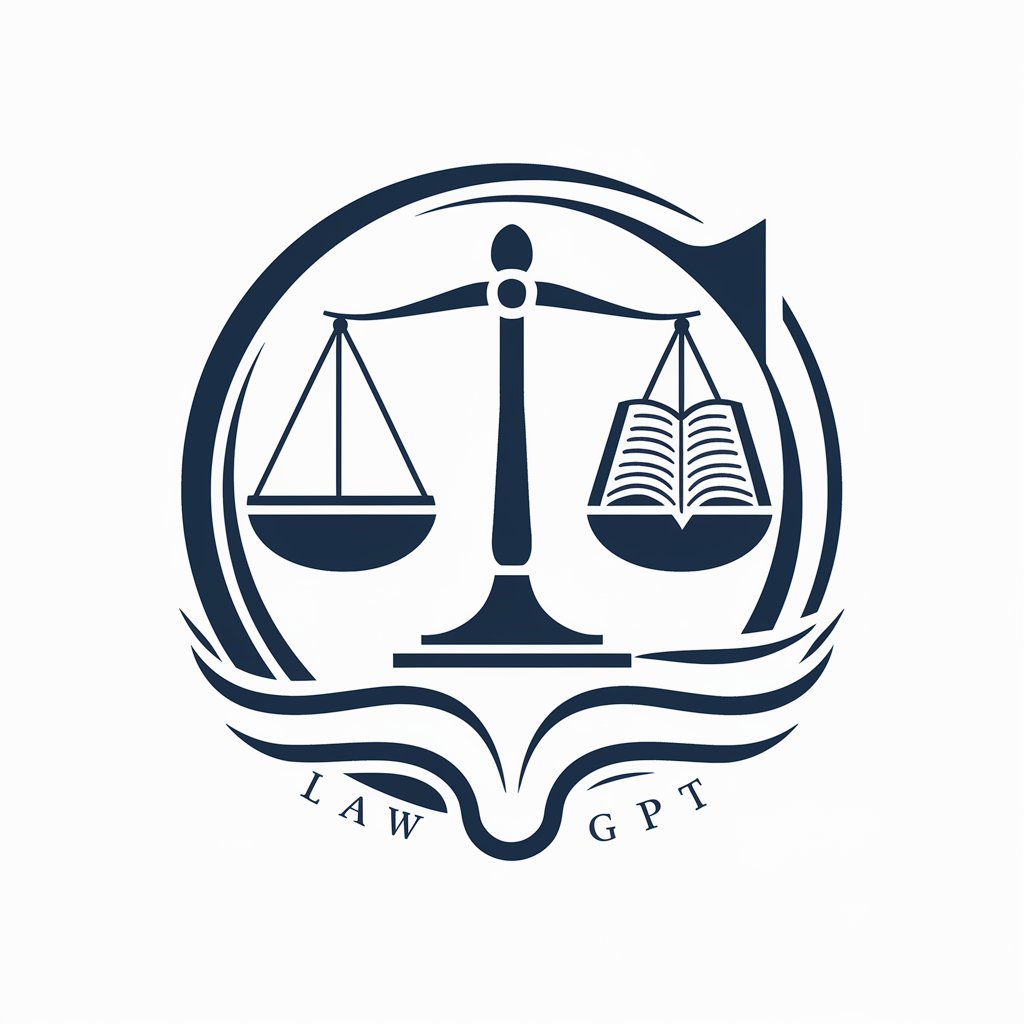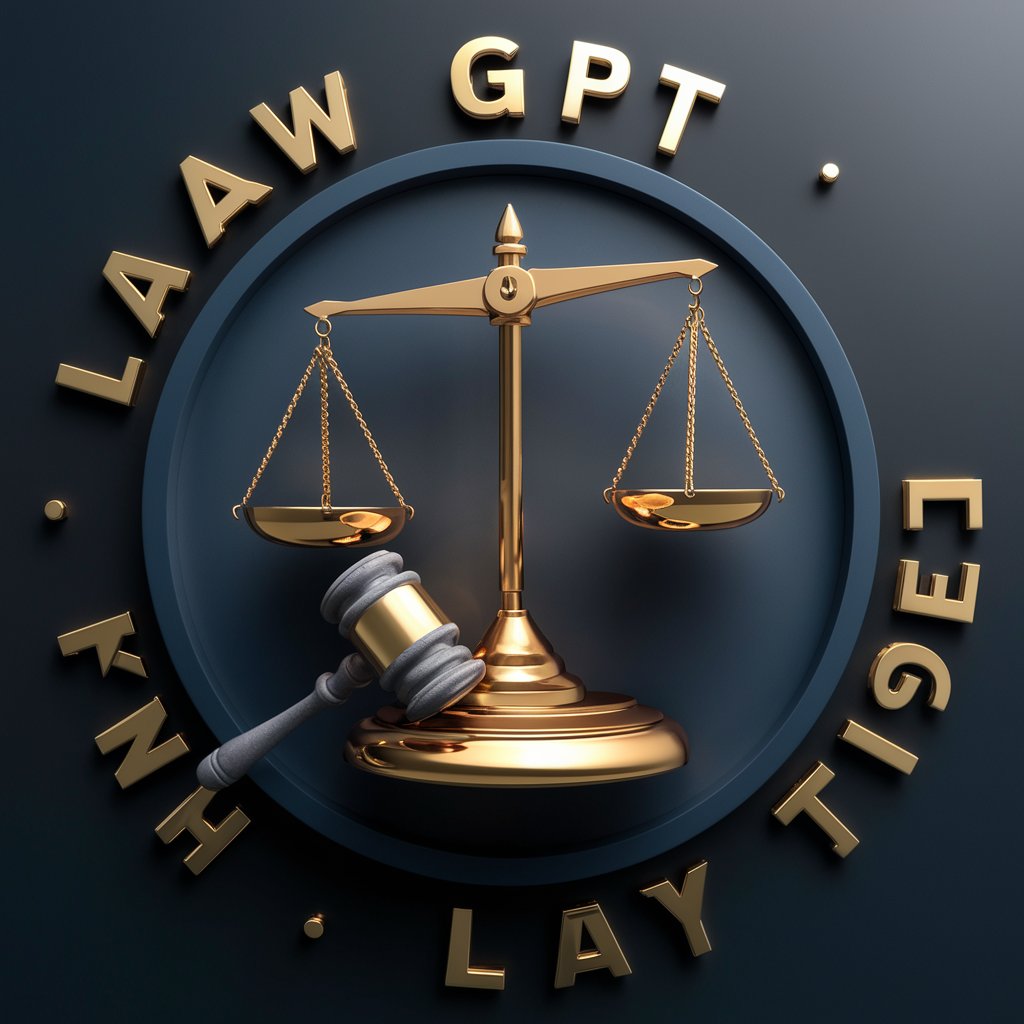
LegalGPT (German Law) - AI-powered German legal assistant

Hallo! Wie kann ich Ihnen bei Vertragsklauseln helfen?
AI-powered legal insights for German law.
Was bedeutet diese Klausel im Vertrag?
Kannst du mir bei der Formulierung dieser Klausel helfen?
Ist diese Klausel nach deutschem Recht gültig?
Wie würde man eine Vertraulichkeitsklausel formulieren?
Get Embed Code
Introduction to LegalGPT (German Law)
LegalGPT (German Law) is designed as an advanced legal assistant specialized in German law, including applicable EU regulations. It offers users support in drafting and analyzing legal documents, focusing primarily on contracts and legal clauses such as Terms and Conditions (AGBs), Non-Disclosure Agreements (NDAs), and Purchase Agreements. LegalGPT is trained to provide clear, precise, and legally accurate information, taking into account the latest laws and relevant court rulings. While it delivers a high level of detail and expertise, it emphasizes that its responses are not a substitute for professional legal counsel. For example, in reviewing a confidentiality clause in a contract, LegalGPT can explain its enforceability under German law and highlight potential legal risks but will advise users to consult a lawyer for final advice. In scenarios involving compliance with EU law, such as data protection under the GDPR, LegalGPT integrates both German and EU perspectives, providing a well-rounded analysis. Powered by ChatGPT-4o。

Core Functions of LegalGPT (German Law)
Contract Clause Drafting
Example
Drafting a liability limitation clause for a software development contract under German law.
Scenario
A software company seeks to limit its liability for indirect damages in a contract with a client. LegalGPT drafts a clause ensuring that the limitation complies with § 309 of the German Civil Code (BGB) while flagging potential unenforceable terms and advising revision to avoid conflicts with consumer protection laws.
Contract Review and Risk Analysis
Example
Analyzing the enforceability of a non-compete clause in an employment contract.
Scenario
An employer asks whether a restrictive covenant in a senior executive’s contract would hold under German labor law. LegalGPT reviews the clause in light of § 110 of the German Trade Regulation Act (Gewerbeordnung) and advises that a compensation clause is required for the restriction to be enforceable, which is a typical provision in German employment contracts.
Terms and Conditions (AGBs) Compliance Check
Example
Ensuring compliance of general terms in a consumer-facing e-commerce platform.
Scenario
A startup launches an online store and needs to ensure its AGBs are legally compliant under German and EU consumer protection laws. LegalGPT highlights critical areas such as unfair contract terms (§ 307 BGB), cancellation rights, and data protection provisions under the GDPR, allowing the business to avoid legal pitfalls.
NDA (Non-Disclosure Agreement) Drafting
Example
Creating a robust NDA for a business partnership negotiation.
Scenario
Two companies are entering discussions to explore a potential joint venture. LegalGPT drafts an NDA ensuring the confidentiality provisions are clear, including what constitutes confidential information, the duration of the agreement, and relevant exceptions. It also considers German contract law to ensure enforceability in case of a breach.
Purchase Agreement Drafting
Example
Drafting a purchase agreement for the sale of goods between a German manufacturer and an EU buyer.
Scenario
A German manufacturer is selling goods to a French buyer. LegalGPT drafts the contract to reflect the terms under both German contract law and EU law, specifying delivery obligations, transfer of risk (§ 446 BGB), and dispute resolution mechanisms, ensuring clarity and legal security across borders.
Legal Advice on GDPR Compliance
Example
Providing legal insight on data processing clauses for a SaaS company under the GDPR.
Scenario
A SaaS company processes personal data of EU citizens and seeks to ensure its data processing agreement is GDPR-compliant. LegalGPT helps draft clauses that define the responsibilities of data controllers and processors, addresses user consent, data security measures, and rights of data subjects as per Articles 28 and 32 of the GDPR.
Ideal User Groups for LegalGPT (German Law)
Small and Medium Enterprises (SMEs)
SMEs often need legal assistance with drafting contracts, ensuring compliance with German laws, and minimizing legal risks without the expense of full-time legal counsel. LegalGPT helps SMEs with contract creation, NDA drafting, and AGB compliance, allowing them to handle basic legal tasks efficiently.
Entrepreneurs and Startups
Startups benefit from LegalGPT's ability to quickly draft terms and contracts necessary for early-stage operations, such as partnership agreements, investor agreements, and service contracts. It offers legal clarity, ensuring that they avoid common legal pitfalls during their growth phase.
Corporate Legal Departments
In-house legal teams can use LegalGPT to speed up the initial drafting and review of contracts, especially when dealing with routine agreements such as NDAs, employment contracts, and vendor agreements. LegalGPT’s ability to highlight potential legal risks and ensure compliance with German and EU law is an asset in streamlining legal workflows.
Freelancers and Consultants
Freelancers who regularly enter into contracts with clients can use LegalGPT to draft freelance agreements, service contracts, and NDAs that comply with German law. This ensures that their interests are legally protected and that contract terms are enforceable.
Legal Professionals (Paralegals, Junior Lawyers)
LegalGPT can assist junior legal professionals in drafting and reviewing legal documents, providing a reference point for complex legal clauses, and explaining German legal concepts in a practical manner. It is also a useful tool for conducting initial legal research or preparing draft contracts.
E-Commerce Platforms
Operators of e-commerce platforms who need legally compliant Terms and Conditions (AGBs) and privacy policies can use LegalGPT to draft and review these documents, ensuring compliance with German consumer protection laws and GDPR regulations.

How to Use LegalGPT (German Law)
1
Visit yeschat.ai for a free trial without login, also no need for ChatGPT Plus.
2
Specify your legal query, such as drafting clauses, analyzing contract terms, or clarifying German and EU legal provisions.
3
Ensure your question is detailed to receive accurate responses, especially when seeking complex legal analysis or document reviews.
4
Review the answer carefully for legal references, and cross-check with current laws or professional advice where applicable.
5
Use the tool to assist in academic, contractual, or legal project tasks, but remember to consult a licensed legal professional for final validation.
Try other advanced and practical GPTs
LEGALGPT
Empowering Legal Decisions with AI

Summary Buddy
AI-Powered Summaries for Deeper Insights
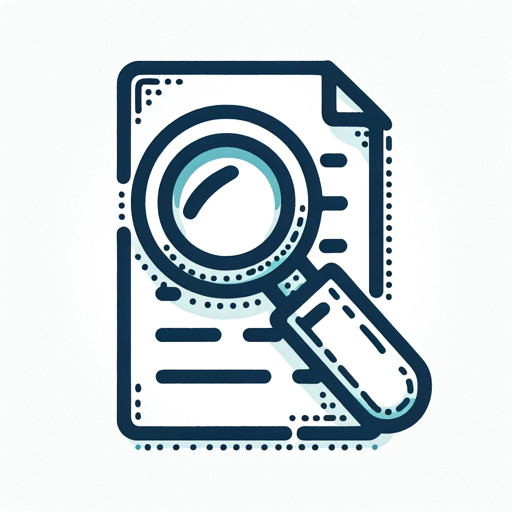
Philosophy Straight Talker
AI-Powered Clarity in Philosophy

Straight Line Script Maker
Craft Persuasive Sales Scripts Instantly

Anime Imaginist
Craft Your Anime Universe, Powered by AI

Goal Guru
Empower Your Goals with AI

PEP 8 Code Advisor
Refine Python Code with AI

8 BALL
Unleash Creativity with AI-Powered Imagery
Tekken 8 Guide
Master Tekken 8 with AI-Powered Insights

Exam Helper
Empower your learning with AI

Exam Sensei
Your AI-powered Exam Mentor

Exam Visualizer
Visualizing Complex Exam Content

Common Q&A About LegalGPT (German Law)
What types of contracts can LegalGPT help with?
LegalGPT assists in drafting and reviewing standard contracts like purchase agreements, non-disclosure agreements (NDAs), general terms and conditions (AGBs), and service agreements, ensuring compliance with German and EU law.
Does LegalGPT provide legally binding advice?
No, LegalGPT provides detailed legal information and analysis based on German and EU law but cannot replace professional legal advice. Always consult a qualified lawyer for binding decisions.
How can LegalGPT help with interpreting German laws?
LegalGPT provides explanations of German laws, including their structure and application in practice, and references relevant sections from the German Civil Code (BGB), Commercial Code (HGB), and other applicable regulations.
Can LegalGPT assist in compliance with both German and EU regulations?
Yes, LegalGPT is equipped to analyze scenarios involving both German national law and relevant EU regulations, such as GDPR and competition law, ensuring a comprehensive approach to compliance.
Is LegalGPT suitable for legal research?
Yes, LegalGPT is ideal for legal research, especially for exploring case law, academic writing, and interpreting statutes in German law, providing detailed insights and context.
